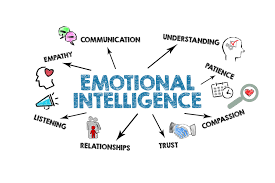The global market for emotional intelligence is a dynamic, multi-layered, and highly fragmented arena, where a diverse cast of assessment publishers, large consulting firms, a vast community of individual coaches, and a new generation of tech startups are all competing to be the trusted partner in the development of this critical human competency. The Emotional Intelligence Market Competitive Landscape is, at its foundational and most scientifically rigorous layer, defined by a small number of specialized assessment publishers who own the intellectual property for the most widely used and validated EQ tests. This core group includes companies like MHS (Multi-Health Systems), who publish the EQ-i 2.0, and other firms associated with the major academic models of EQ. Their competitive strategy is to act as the "gatekeepers" of the science, and their business model is built on certifying a global network of thousands of coaches and consultants who are then licensed to use their proprietary assessment tools with their own clients. Their brand and their competitive advantage are built on the credibility and the decades of research that underpin their instruments.
A second, and by far the largest, segment of the competitive landscape is the massive and diffuse ecosystem of service providers: the executive coaches, leadership development consultants, and corporate trainers. This is the "boots on the ground" of the industry. This highly fragmented segment is composed of tens of thousands of individual practitioners and boutique firms. Their competitive strategy is not about owning the IP, but about being the expert facilitator and guide. They compete on the basis of their coaching and training skills, their industry expertise, their personal brand and reputation, and their ability to build deep, trusted relationships with their clients. This segment also includes the major, global management and HR consulting firms, like Korn Ferry and the "Big Four," who have built out their own large leadership development practices that often incorporate emotional intelligence as a core component of their offerings, leveraging their massive scale and C-suite relationships to compete.
The competitive landscape has been completely and irrevocably reshaped in recent years by a third, powerful and disruptive force: the rise of technology and software platforms. This is a new and fast-moving category of competitor that is seeking to disrupt the traditional, high-touch, and services-heavy model of the industry. This includes a wide array of players. On one end are the major e-learning platforms, like LinkedIn Learning and Coursera, who have partnered with major thought leaders to offer scalable, on-demand video courses on emotional intelligence to a massive global audience. On the other end are the venture-backed startups who are building innovative new tools, such as mobile apps for mindfulness and emotional regulation (like Calm and Headspace), and a new generation of AI-powered platforms that offer real-time feedback and coaching on communication skills. The competitive strategy of these tech players is to offer a more scalable, affordable, and data-driven alternative or supplement to traditional training, and they represent the most dynamic and high-growth segment of the entire competitive landscape.
Top Trending Regional Reports -






